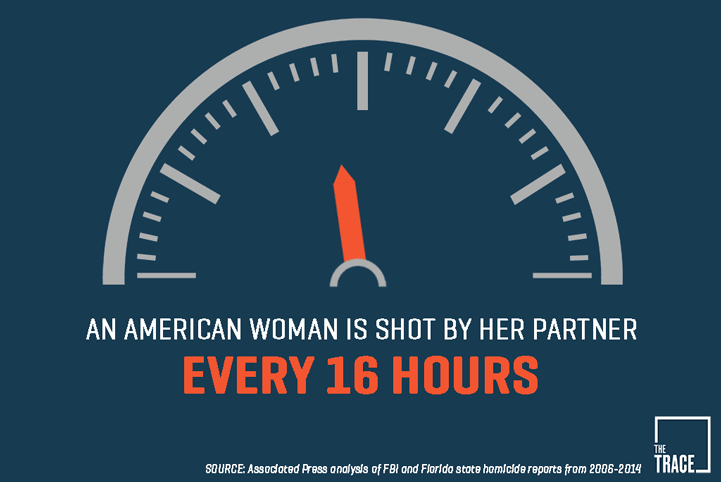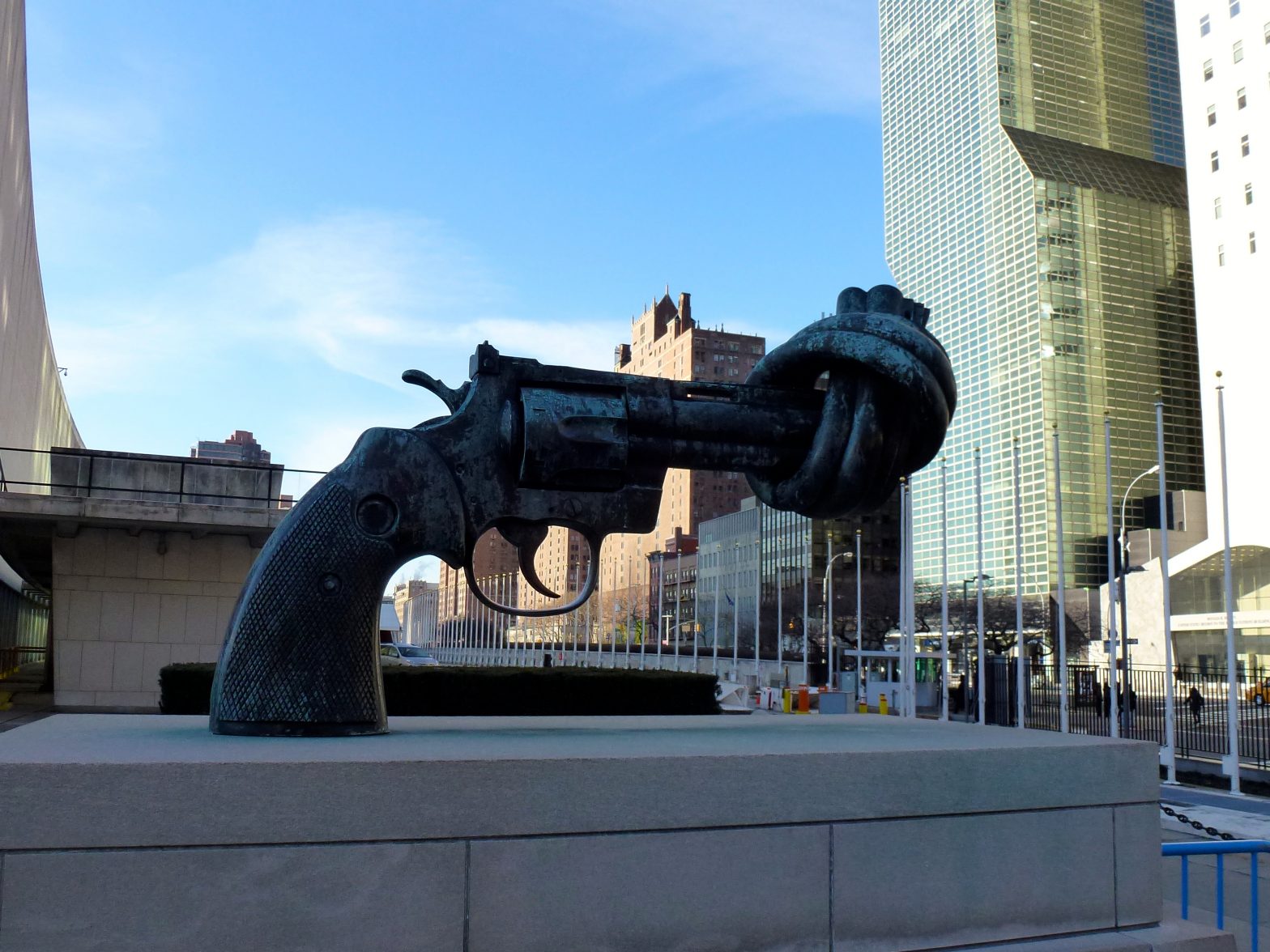Twelfth in a series for 16 Days of Activism Against Gender-based Violence. Photo by by ZhengZhou of the sculpture “Non-Violence” by Carl Fredrik Reuterswärd, in front of UN headquarters at New York City.
December 6, 1989 was the Montreal massacre – a mass shooting at the École Polytechnique specifically targeting feminists. Since then, December 6 has become a National Day of Remembrance, and has mobilized the Canadian gun control movement as well as the movement to end male violence against women. Their activism led to Canada’s federal government establishing the Panel on Violence Against Women in August 1991, and passage of Bill C-68, or the Firearms Act, in 1995, ushering in stricter gun control regulations.
This spirit of remembrance and activism is continued by the “White Ribbon Campaign” in which men wear a white ribbon as a “pledge to never commit, condone or remain silent about violence against women and girls.”
TheTrace.org is a non-profit news service on gun violence in the United States. It provides a fact sheet – 12 Facts That Show How Guns Make Domestic Violence Even Deadlier. It states “domestic violence claims at least 2,000 lives each year. Seventy percent of the victims are women. More than half of the time, the weapon used to carry out an ‘intimate partner’ homicide… is a gun.” When guns are involved in domestic violence, they also kill numerous children as well as the police responding to the incidence.

While the US has the highest rate of gun ownership in the world, there is currently a flood of “surplus” small military arms entering countries everywhere, particularly in Africa. To counter this, there is IANSA – the International Action Network on Small Arms. For example, it supports the African Union (AU) “Gun Amnesty Month” each September, to help collect some of Africa’s millions of illicit small arms and light weapons – giving citizens a chance to turn them in without fear of prosecution. It is part of the AU’s larger “Silence the Guns in Africa by the Year 2020.”
Clearly, there is a link between overcoming the toxic masculinity that finds a misguided security in keeping handguns in the home, the importance of common-sense gun safety legislation and developing a culture of gender justice that respects the human rights of every woman and girl. On this National Day of Remembrance – whether Canadian or not – we can each learn more on how we can transcend patriarchy in our communities and our world.


